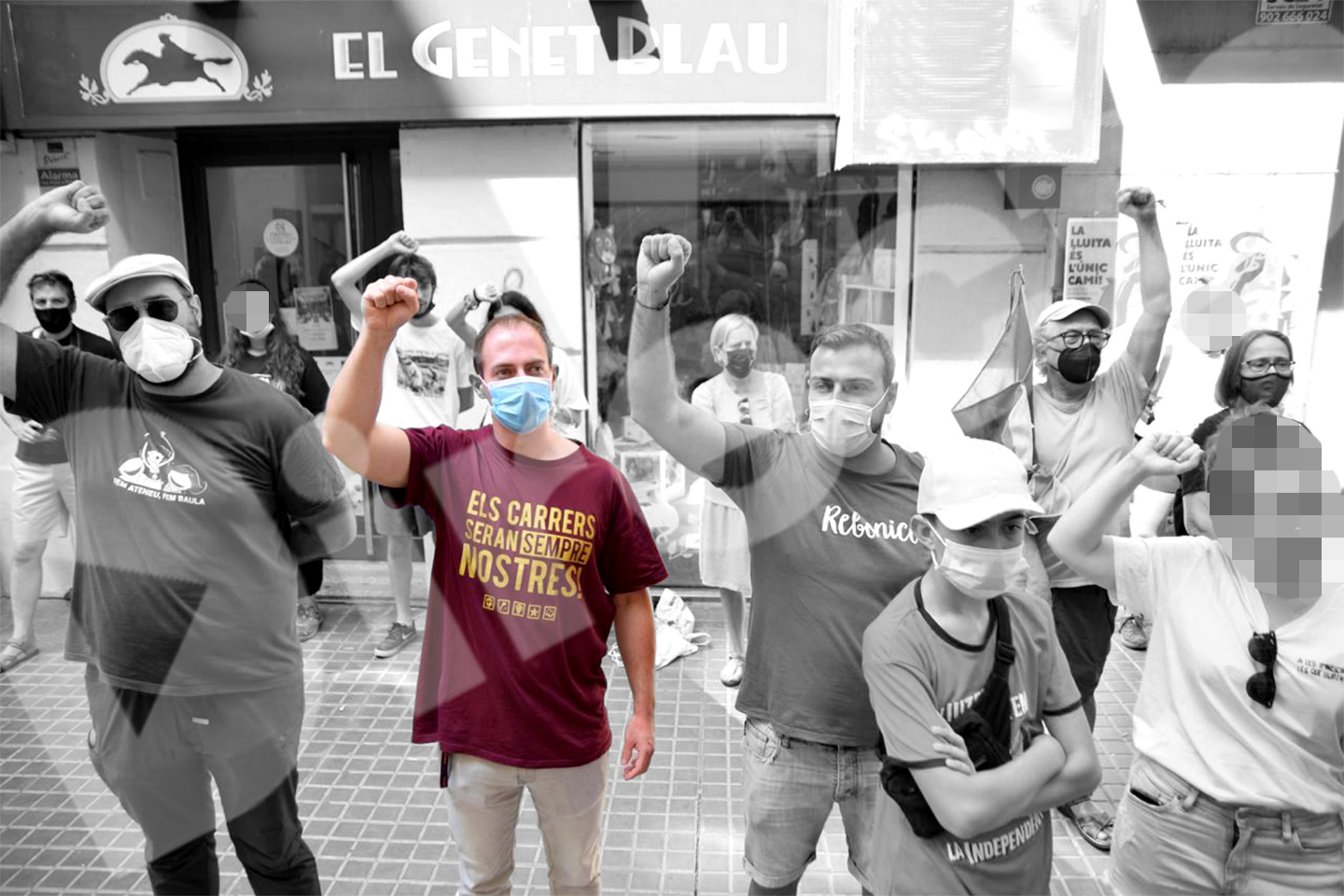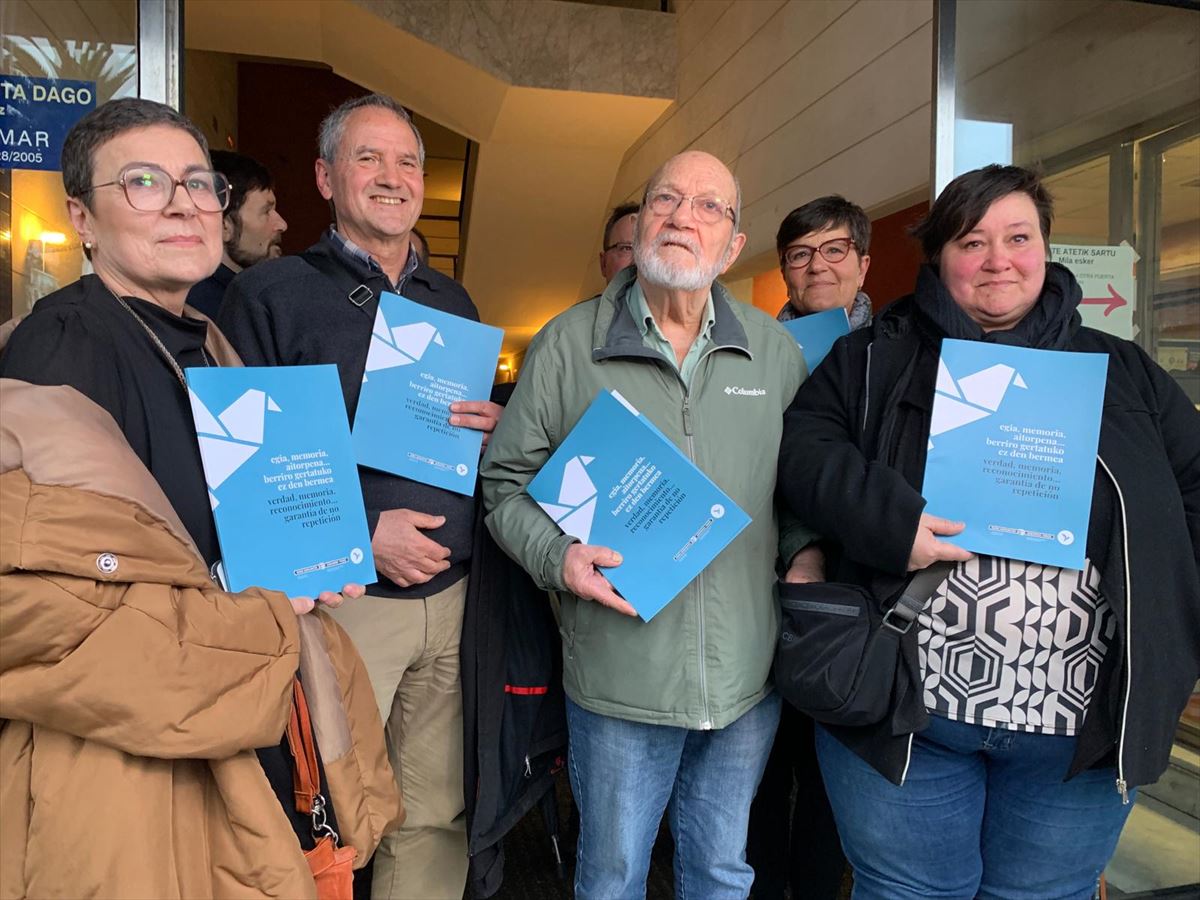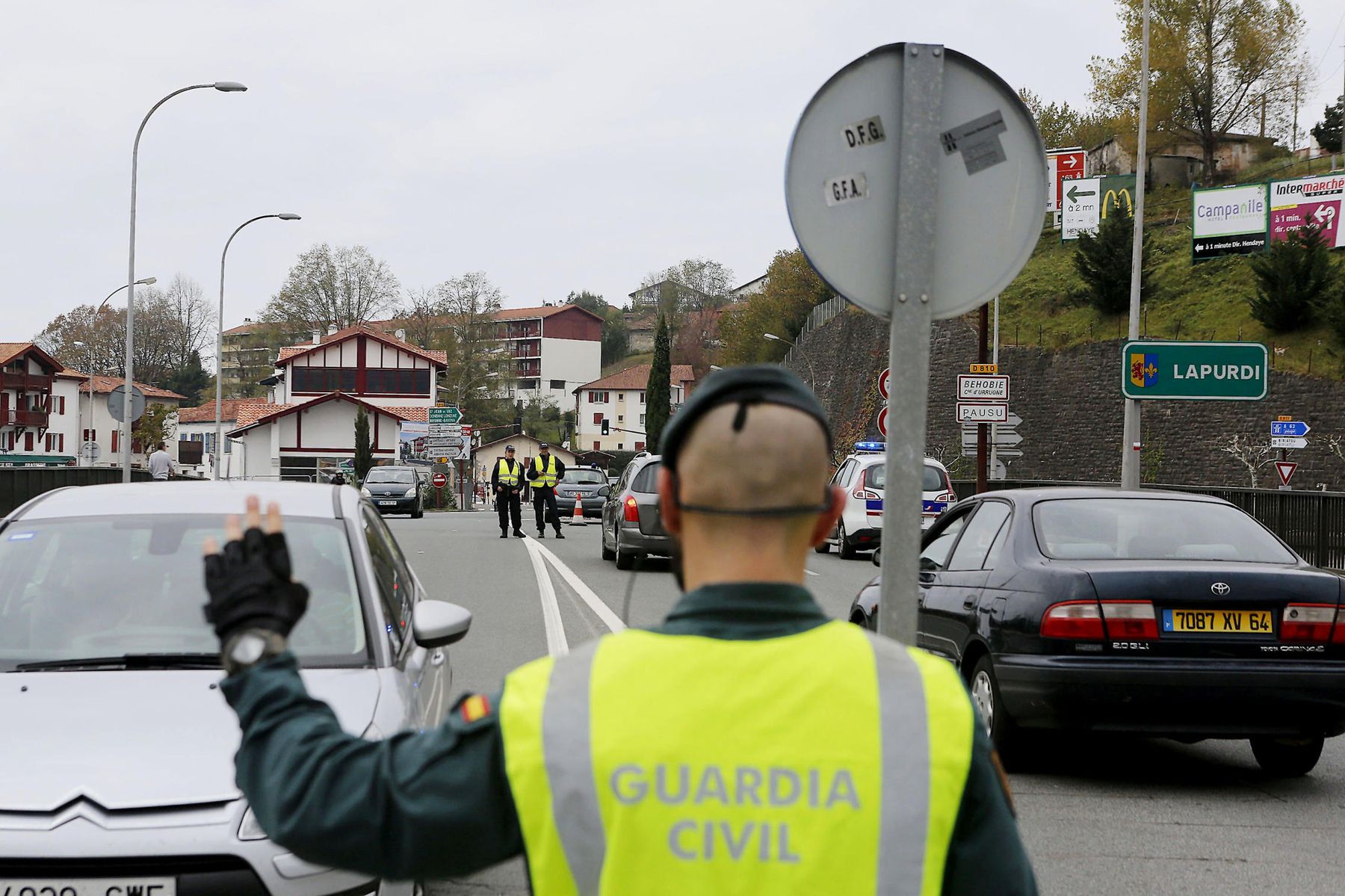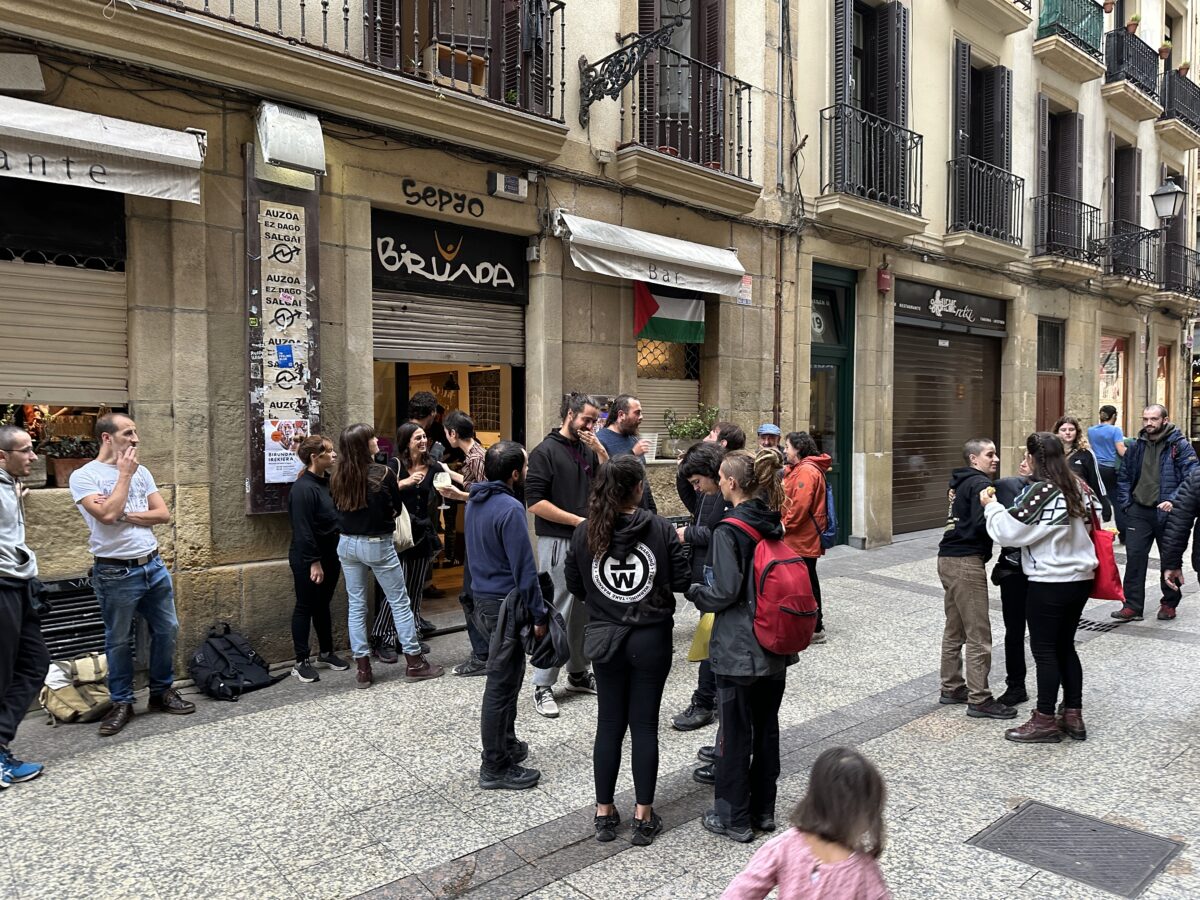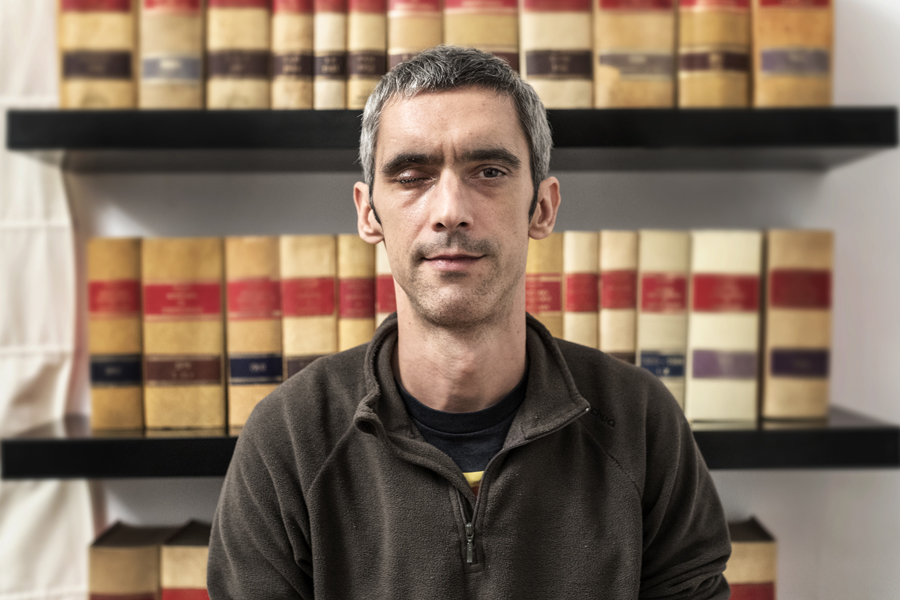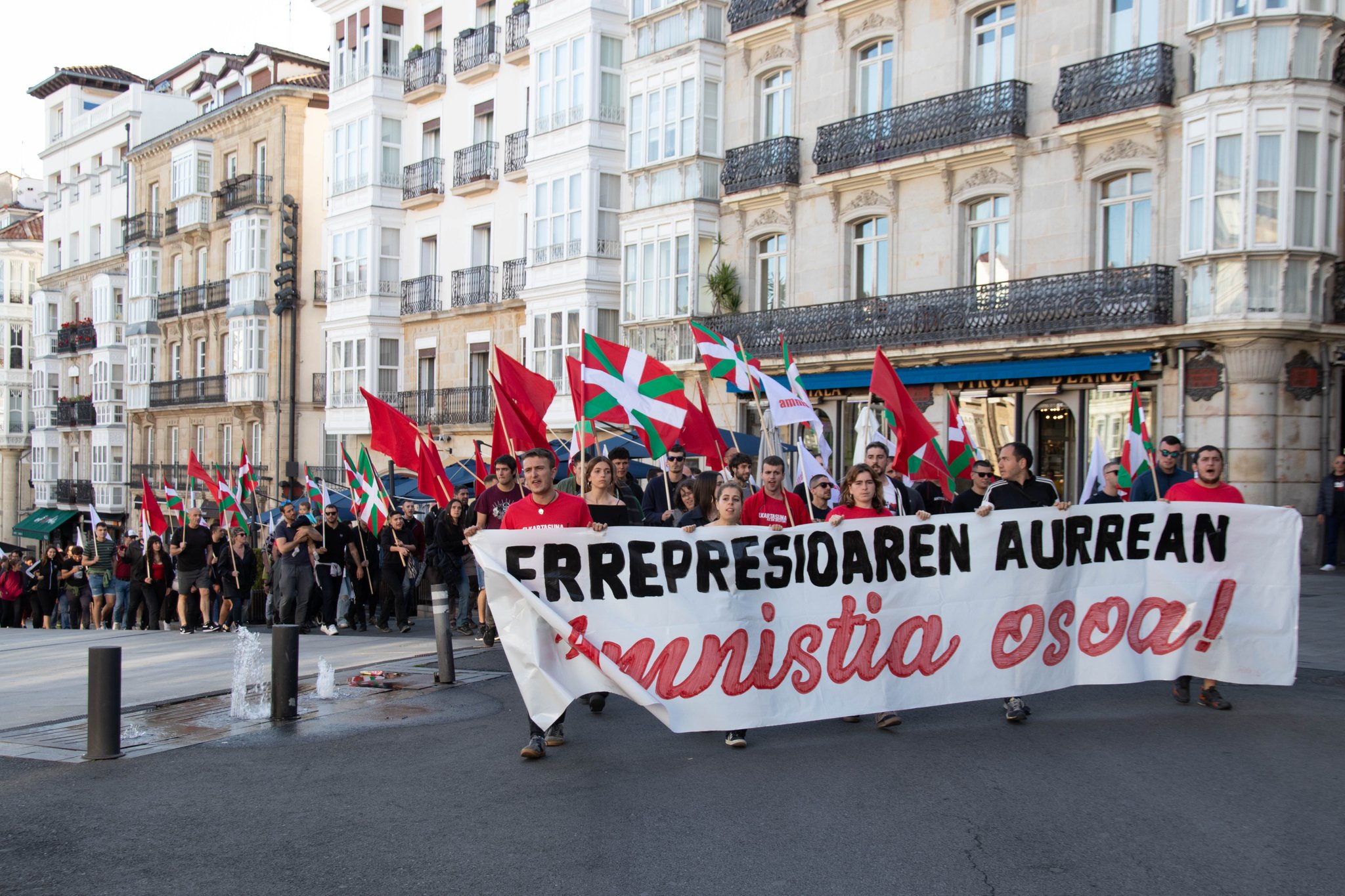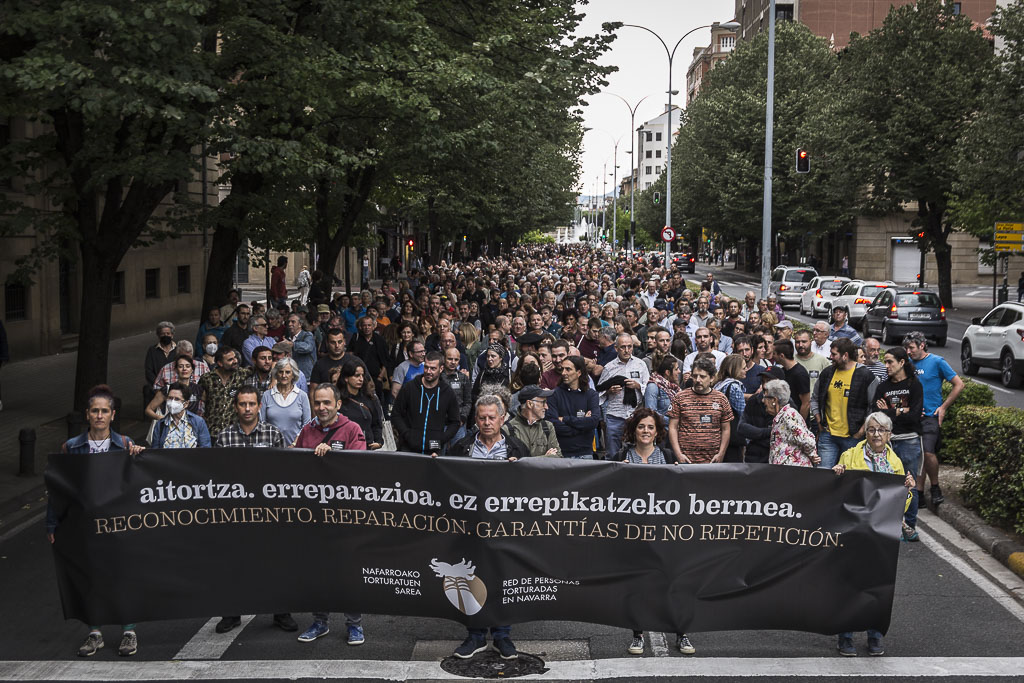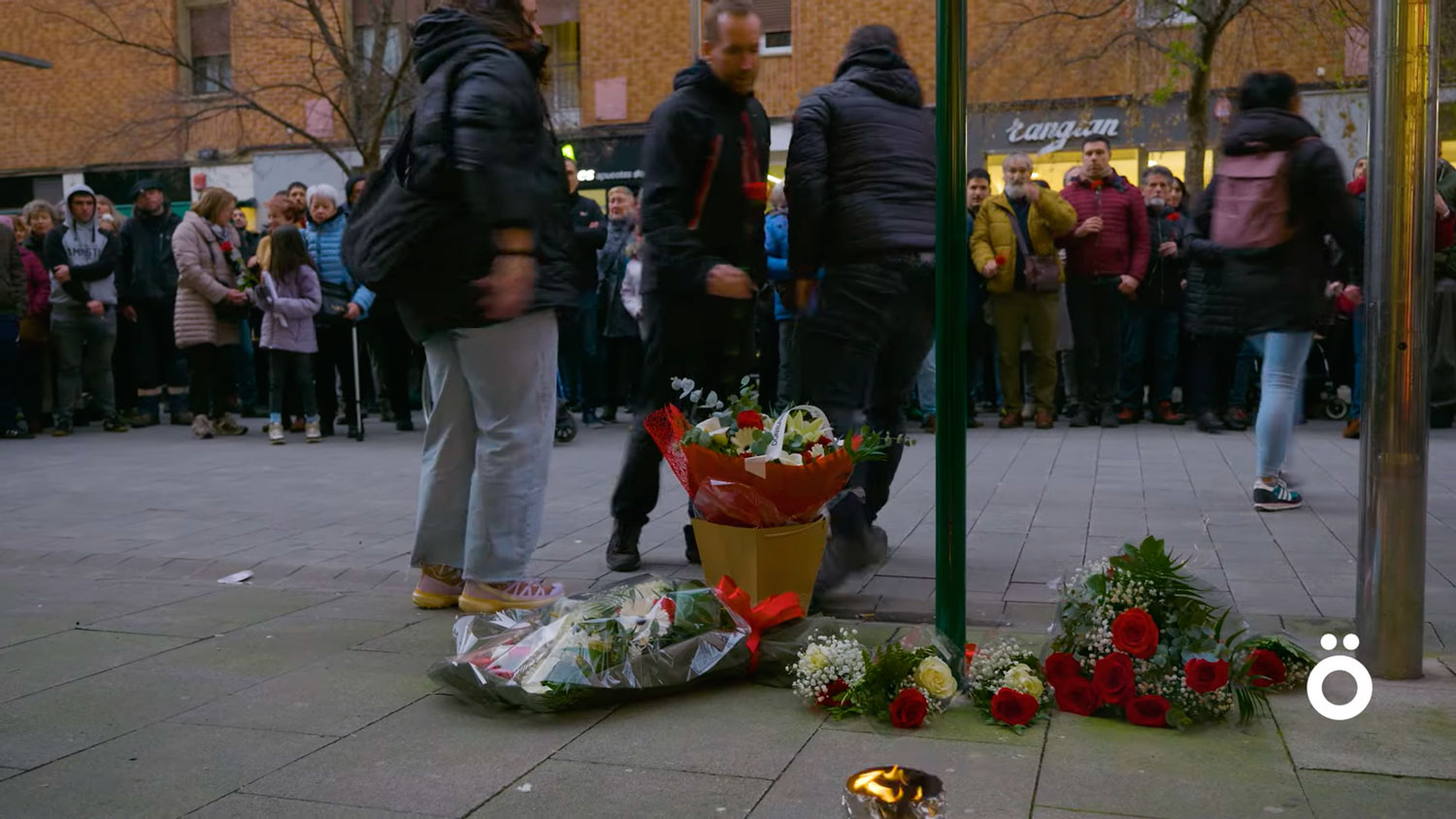"Assaults by police officers are not hate crimes"
- The member of the European Commission against Racism and Intolerance (EUA), the Organization for Security and Cooperation in Europe (ESLE) and the United Kingdom Institute of Racial Relations (UK IDR) have stated that hate crime was designed to help discriminated groups and not public officials.

Hate crime has recently been used in several cases in the Spanish State, including the case of Rommy Arce de Ahora Madrid and Malick Gueye, spokesman for the Manteros, murdered in the Lavapies neighborhood of Madrid; in the case of the young people of Altsasu or in the case of the teachers of the Seu d’Urgel. The Lleida Court ruled in favor of the latter, saying that the Civil Guard is not a “marginalized or threatened” group.
Liz Feket, head of the AEI, says she is shocked by these cases. The organization analyzes hate crimes within the European Union but says it is “frightened” by the way they use the concept in the Spanish state.
ESLE spokesman Thomas Rymer denied that a person’s profession could be a cause of discrimination. “Hate crime” includes discrimination based on ethnicity, language, religion, nationality, sexual orientation, or similar characteristics, but not simply being a police officer.
Wolfran Bechtel, a U.S. lawyer, told Publico that “a police officer may, in principle, be a victim of hate crime if, for example, he is insulted for racist reasons,” but said that this is not the case in the Spanish state.
Fusilamenduak, elektrodoak eta poltsa, hobi komunak, kolpismoa, jazarpena, drogak, Galindo, umiliazioak, gerra zikina, Intxaurrondo, narkotrafikoa, estoldak, hizkuntza inposaketa, Altsasu, inpunitatea… Guardia Zibilaren lorratza iluna da Euskal Herrian, baita Espainiako... [+]
Azken astean ezagutarazi moduan, Eusko Jaurlaritzaren Balorazio Batzordeak txosten banatan aitortu ditu estatuaren biktima gisa. Justizia sailburuak ekitaldi pribatu banatan entregatu dizkie dokumentuak.
Guardia Zibilaren historia bat - Hemendik alde egiteko arrazoiak izenburupean, datorren astean argitaratuko dugun 305. LARRUN aldizkariaren pasarte batzuk dira ondorengoak, erakunde armatuaren sorrera garaietan girotutakoak.
Rosa Zarra Ertzaintzaren pilotakada baten ondorioz hil zela da Eusko Jaurlaritzako Poliziaren Biktimen Balorazio Batzordeak atera duen ondorioa, Berria-k jakinarazi duenez. Orain arte, Ertzaintzak beti egin dio uko bertsio horri, eta Rosa Zarra berak zuen gaixotasunaren ondorioz... [+]
Ustez, lokalaren jabetza eskuratu dutenek bidali dituzte sarrailagileak sarraila aldatzera; Ertzaintzak babestuta aritu dira hori egiten. Birundak epaiketa bat irabazi du duela gutxi.
Lau agenteak lesio-delituengatik ikertzen ari dira eta horrek galarazten du 2024ko amnistia aplikatzea. Polizia horietako batek, ustez, gomazko bala batekin begi bat zartatu zion Roger Español kataluniarrari.
Ertzaintzak martxoaren 13an Bilbon zauritutako bi pertsonaren testigantza jaso ditugu. Athleticen partidaren ostean larriki zauritu zituzten aita-semeak, borra-kolpeka, eta atxilo eraman zuten haietako bat. Furgonetatik ikusi zuen ertzainek nola egin zuten tiro jendearen kontra,... [+]
2022ko ekainaren 7an, Directa-k serie luze bateko lehen polizia infiltratuaren kasua argitaratu zuen. Martxoaren 5ean, Belen Hammad fikziozko izena erreta geratu zen, polizia-argotean dioten bezala. Jada hamar dira Directa, El Salto eta El Diario-k azken hiru urteetan argitara... [+]
2023an Zaballako espetxean euskal presoen alde egindako martxarengatik ezarri zizkieten isunak. Helegiteen ezeztapenaren aurrean epaitegietara joko dutela adierazi du antolakundeak, eta Poliziaren inpunitatea salatu du.
Oraingoz Nafarroan, 53 izango dira estatuaren biktima aitortuak eta horietatik 27 torturaren biktimak. Floren Beraza, Txaro Buñuel, Cecilio Ruiz, Patricia Perales eta Izaskun Juarez dira aitortutako torturatu berriak.
Duela gutxi, asteburu berean, Ertzaintzak bi salaketa jaso ditu: lehenengoa, emakume kolonbiar batena; lekukoen arabera, ertzainak kolpeka jarraitu zuen lurrera bota ondoren eta konorterik gabe zegoela; ospitalean garuneko edema eta paralisi partziala diagnostikatu zizkioten... [+]
Familiak eskatu bezala, aurten Angel oroitzeko ekitaldia lore-eskaintza txiki bat izan da, Martin Azpilikueta kalean oroitarazten duen plakaren ondoan. 21 urte geroago, Angel jada biktima-estatus ofizialarekin gogoratzen dute.








